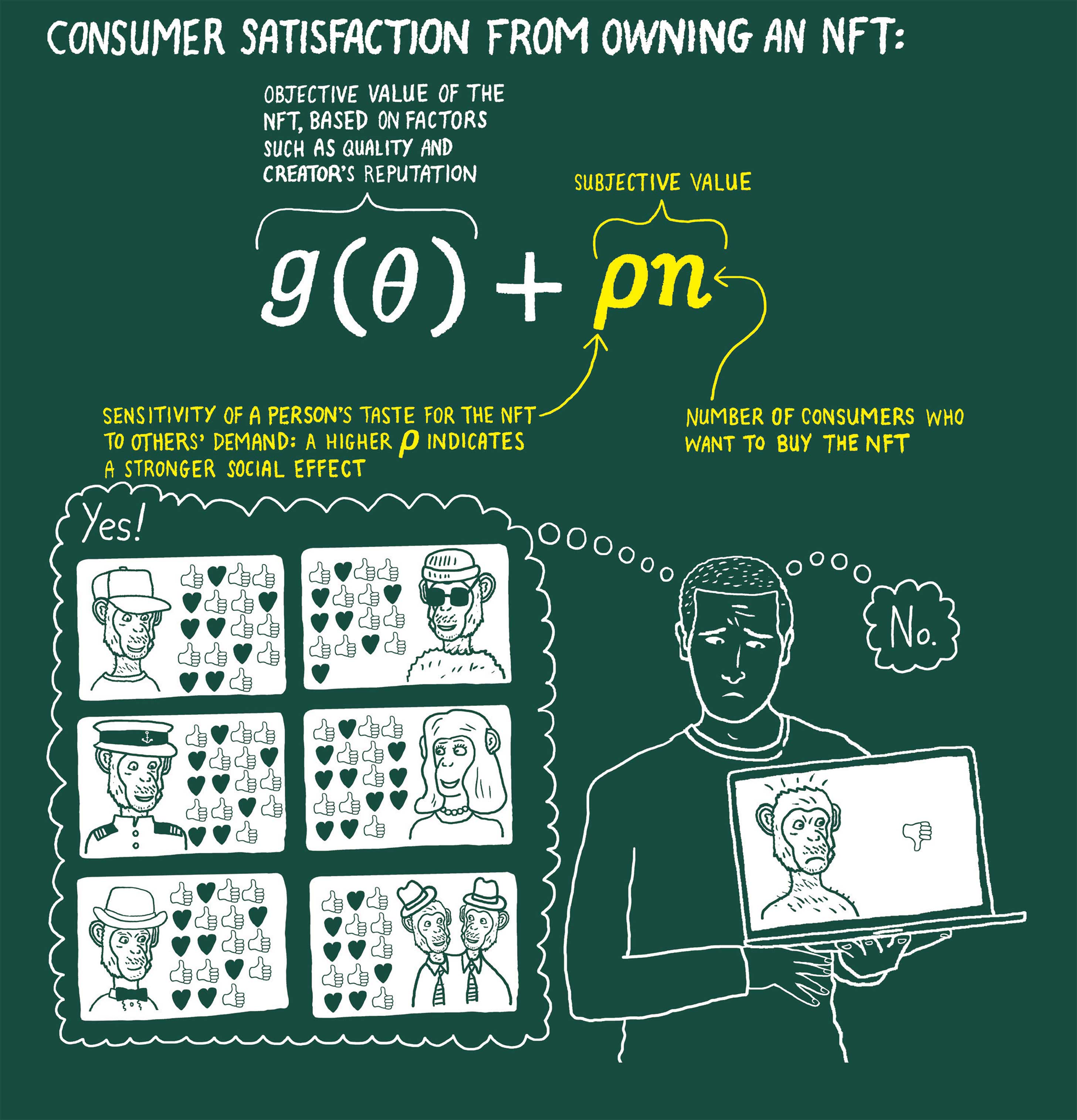
The Equation: NFTs and the Power of Social Influence
- June 03, 2024
- CBR - Finance

The late economist Gary S. Becker once asked why a successful restaurant would avoid raising prices despite a long queue of customers. The answer, he suggested, lies in the fact that for certain products, how much one person wants the item is influenced by how much other people also want it—which makes demand quite fragile. A trendy restaurant that raises prices even by a little can quickly become unpopular.
The same dynamic extends to nonfungible tokens, according to recent research by Temple University’s Sebeom Oh and Samuel Rosen and Chicago Booth’s Anthony Lee Zhang. The satisfaction that a consumer derives from owning part of an NFT collection hinges on two things: an objective value on which everyone agrees, and a subjective one that’s linked to other consumers’ valuations. The latter, social component is why some NFT collections sell out while others sell poorly, and it’s also why issuers often underprice NFTs and limit their supply, according to the research. To learn more, read “How NFTs Defy the Laws of Supply and Demand.”

Illustration by Peter Arkle

Chicago Booth’s Steve Kaplan says that private-equity firms frequently invest and grow companies more effectively than other owners.
What’s So Bad About Private Equity?
Big companies try to impose discipline on spending by setting budgets for everything, but the rules lead to lots of waste.
How the Budgeting Tail Wags the Corporate Dog
The largest institutions have increasingly favored green stocks in recent years as small investors have done the opposite.
Big Finance Is Going Green. Smaller Finance, Not So MuchYour Privacy
We want to demonstrate our commitment to your privacy. Please review Chicago Booth's privacy notice, which provides information explaining how and why we collect particular information when you visit our website.